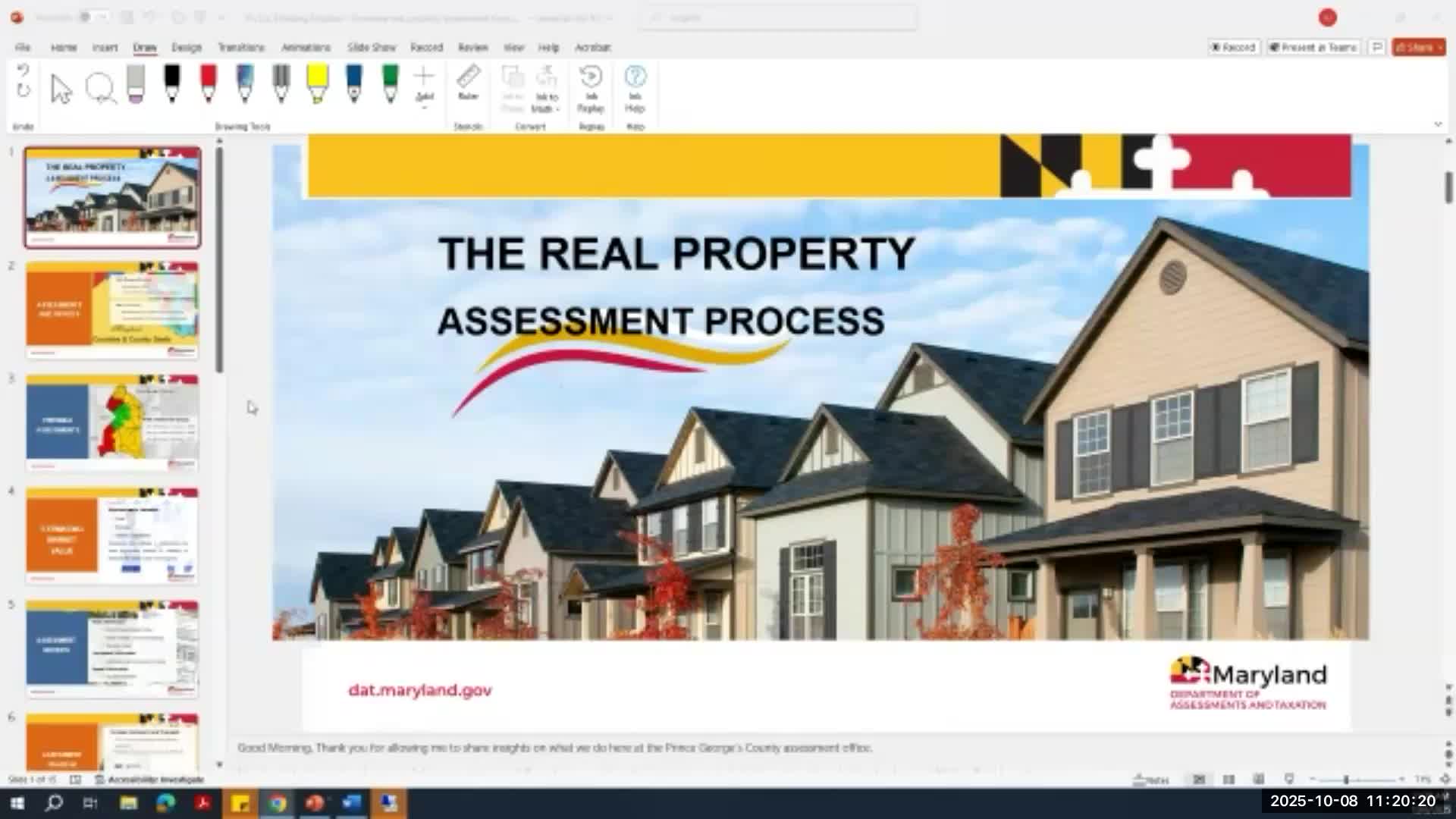State assessors brief county task force on property valuations, homestead credit and appeals process
Get AI-powered insights, summaries, and transcripts
Subscribe
Summary
Kim Jackson of the Maryland Department of Assessments and Taxation explained how properties are appraised every three years, the homestead tax credit and the appeals path; task force members requested additional appeals and tax‑sale impact data and outreach materials for seniors.
Kim Jackson, supervisor of assessments for Prince George's County at the Maryland Department of Assessments and Taxation, briefed the Holistic Sustainable Solutions for Senior Citizens Task Force on property valuation, exemptions and appeals.
Jackson explained that Maryland appraises more than 2 million property accounts and that local properties are reappraised on a three‑year cycle. "The department certifies assessments to local governments, which then convert these assessments into property tax bills by applying the relevant tax rates," she said, walking the committee through the cost, income and sales comparison approaches the office uses.
Why it matters: Property assessments and exemptions directly affect seniors on fixed incomes. The task force sought clarity about which tax credits and exemptions may reduce burdens and what recourse homeowners have if they believe an assessment is incorrect.
Key points from the presentation: Jackson said reassessment notices for each three‑group cycle are sent so owners receive notice around Jan. 1 of the assessment year. She described phased‑in increases with an example: a prior assessed value of $200,000 phased to a new full value of $230,000 would be recognized as $210,000 in 2025, $220,000 in 2026 and $230,000 in 2027. She said that decreases in assessed value are not phased in; they apply immediately.
Jackson described the Homestead Residence Tax Credit and eligibility rules: the credit limits taxable assessment increases for a homeowner’s primary residence; to qualify the owner must have occupied the dwelling as their principal residence for at least one year by July 1 and applications must be received by May 1. She said homeowners apply once; "you only for the homestead credit, you only have to apply once," she told the committee.
Other programs and thresholds cited: the homeowners income‑based tax credit requires combined gross household income below $60,000 and net worth under $200,000 (excluding the home and certain retirement accounts); the blind exemption provides a $40,000 assessed value reduction for homeowners with qualifying visual impairment; and a 100% disabled‑veteran exemption may remove the primary residence from taxation when the veteran has a total and permanent service‑connected disability.
Appeals process and levels: Jackson outlined informal and formal options: an initial supervisor's hearing (informal review with an assessor), a second‑level hearing before the property tax appeal board, and a final step at the Maryland Tax Court. Appeals can be submitted in writing, by phone, video or in person.
Questions and follow-up requests: Task force members asked for statistics on how many appeals are filed and how many result in changed assessments; Jackson said she did not have that data in the presentation but agreed to provide it after the meeting. Members also asked whether the assessor's office tracks how many seniors lose homes to tax sale; Jackson said that the assessor's office does not track tax‑sale outcomes and recommended the county treasury or clerk’s office as the appropriate source.
Outreach: Jackson agreed to provide the presentation slides and to prepare a flyer about tax credits and exemptions to distribute to council members and task force participants.
Ending: The session closed with the assessor offering follow‑up materials; no formal votes or policy changes were made at the meeting.
